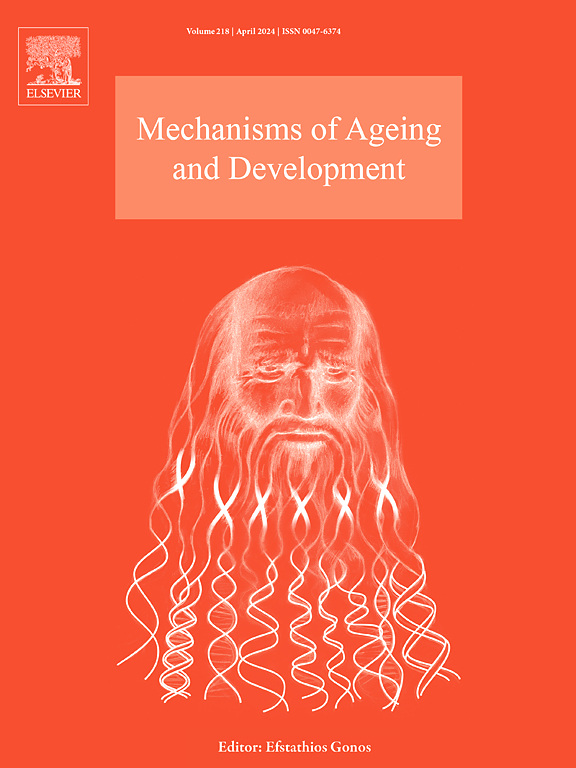诱导动物和人类细胞衰老的膳食成分:系统综述。
IF 5.1
3区 医学
Q2 CELL BIOLOGY
引用次数: 0
摘要
背景:细胞衰老(CS)是衰老和年龄相关疾病的标志。虽然经常探索饮食干预来减少CS,但对引起CS的饮食成分知之甚少。本研究系统地回顾了饮食成分在动物模型和人类中促进CS的证据。方法:根据PRISMA指南(PROSPERO: CRD42022338885),检索PubMed和Embase中经胃肠道给药的膳食成分对动物模型或成人CS标志物的影响的研究。使用cycle和Cochrane的工具评估偏倚风险。结果:共纳入10806篇文献,80项研究(77项动物研究,3项人类研究)。在动物中,高脂肪饮食通常会引起跨组织的CS。植物提取物腾龙补中汤和某些生物活性物质促进肿瘤组织中的CS,具有潜在的抗癌作用。过量的乙醇摄入引起肝脏和其他器官的CS。在人类中,CS负荷的增加与红肉为主的膳食、高蛋白摄入和富含dha的鱼油有关。大多数研究显示不明确的偏倚风险。结论:高脂肪饮食和抗癌天然产品促进了动物模型的CS。初步的人体证据表明,高蛋白、以红肉为基础的饮食或富含dha的鱼油也有类似的效果。需要进一步的研究来阐明机制并指导饮食和公共卫生建议。本文章由计算机程序翻译,如有差异,请以英文原文为准。
Dietary ingredients inducing cellular senescence in animals and humans: A systematic review
Background
Cellular senescence (CS) is a hallmark of ageing and age-related diseases. While dietary interventions are often explored to reduce CS, less is known about dietary ingredients that induce it. This study systematically reviews the evidence on dietary ingredients that promote CS in animal models and humans.
Methods
Following PRISMA guidelines (PROSPERO: CRD42022338885), PubMed and Embase were searched for studies on dietary ingredients administered via the gastrointestinal tract affecting CS markers in animal models or adults. Risk of bias was assessed using SYRCLE’s and Cochrane’s tools.
Results
From 10,806 articles, 80 studies (77 animal, 3 human) were included. In animals, high-fat diets commonly induced CS across tissues. The plant extract Teng Long Bu Zhong Tang and certain bioactives promoted CS in tumor tissues, potentially offering anti-cancer benefits. Excessive ethanol intake caused CS in the liver and other organs. In humans, increased CS load was linked to red meat-based meals, high protein intake, and DHA-enriched fish oil. Most studies showed unclear risk of bias.
Conclusions
High-fat diets and anti-cancer natural products promote CS in animal models. Preliminary human evidence suggests similar effects from high-protein, red meat-based diets, or DHA-enriched fish oil. Further research is needed to clarify mechanisms and guide dietary and public health recommendations.
求助全文
通过发布文献求助,成功后即可免费获取论文全文。
去求助
来源期刊
CiteScore
11.10
自引率
1.90%
发文量
79
审稿时长
32 days
期刊介绍:
Mechanisms of Ageing and Development is a multidisciplinary journal aimed at revealing the molecular, biochemical and biological mechanisms that underlie the processes of aging and development in various species as well as of age-associated diseases. Emphasis is placed on investigations that delineate the contribution of macromolecular damage and cytotoxicity, genetic programs, epigenetics and genetic instability, mitochondrial function, alterations of metabolism and innovative anti-aging approaches. For all of the mentioned studies it is necessary to address the underlying mechanisms.
Mechanisms of Ageing and Development publishes original research, review and mini-review articles. The journal also publishes Special Issues that focus on emerging research areas. Special issues may include all types of articles following peered review. Proposals should be sent directly to the Editor-in-Chief.

 求助内容:
求助内容: 应助结果提醒方式:
应助结果提醒方式:


